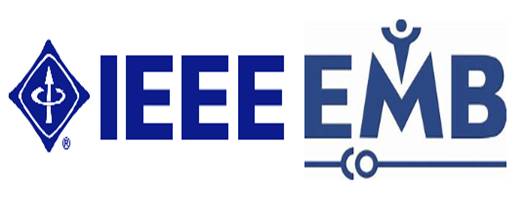 A scientific paper entitled “Personalised Monitoring and Recommendation Services for At-Risk Individuals Employing Machine-Learning and Decision Support” has been co-authored by UBITECH and is presented at the IEEE-EMBS International Conference on Biomedical and Health Informatics (BHI), the flagship conference of IEEE Engineering in Medicine and Biology Society (IEEE-EMBS) on the topics of informatics and computing in healthcare and life sciences, hosted between May 19-22, 2019 in Chicago, IL, USA. In this paper, Perakis Konstantinos, Pitsios Stamatis, Miltiadou Dimitrios, and their co-authors propose a technological solution, facilitating the provision of personalised health related services exploiting Big Data analytics, aiming to improve the everyday living and enhance the wellbeing of vulnerable individuals such as chronic disease patients, focusing mainly on patients suffering from COPD and/or CVD.
A scientific paper entitled “Personalised Monitoring and Recommendation Services for At-Risk Individuals Employing Machine-Learning and Decision Support” has been co-authored by UBITECH and is presented at the IEEE-EMBS International Conference on Biomedical and Health Informatics (BHI), the flagship conference of IEEE Engineering in Medicine and Biology Society (IEEE-EMBS) on the topics of informatics and computing in healthcare and life sciences, hosted between May 19-22, 2019 in Chicago, IL, USA. In this paper, Perakis Konstantinos, Pitsios Stamatis, Miltiadou Dimitrios, and their co-authors propose a technological solution, facilitating the provision of personalised health related services exploiting Big Data analytics, aiming to improve the everyday living and enhance the wellbeing of vulnerable individuals such as chronic disease patients, focusing mainly on patients suffering from COPD and/or CVD.
To this end, a data model for collecting the information from the diverse information sources (including information from wearables such as heart rate, SpO2 and blood pressure, indoors conditions such as humidity, temperature, and VOC, and outdoors environmental conditions such as humidity, temperature, and concentration of fine particles, O3, NO2 and SO2) has been devised, and APIs to automatically fetch data have been implemented. Medical knowledge from health service providers has been incorporated in the solution, so as to generate a series of personas (groups of anonymized users) which are used in order to classify individuals into groups, so as to facilitate the delivery of group-wide notifications (e.g. adults at risk of CVD of seniors suffering from COPD or asthma, etc.).
On top of that, different machine learning algorithms have been used to verify the validity and to train this model for the future inclusion of additional individuals. In close collaboration with medical doctors and healthcare service providers, health and wellbeing rules for the personas identified have been drawn, integrating the limitations of the measurements of the aforementioned information sources (e.g. 55<external PM2.5 concentration<110 and external temperature>30), and a rule engine has been employed, responsible for supporting decision making in the case of the delivery of personalised, proactive recommendations (e.g. “You should consider reducing physical activity and prolonged stay outdoors). Additional machine learning algorithms have been employed in order to proactively detect the predisposition of individuals falling within one persona, to slide into another persona (e.g. a normal, healthy adult running the risk of becoming an overweight adult with increased risk of CVD because of regular increase of his/her BMI and stable increase of his/her heart rate).


